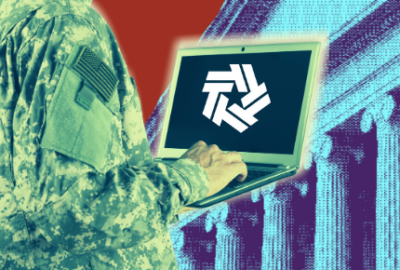

The Department of Veterans Affairs is creating an equity task force to ensure minority and underserved veteran populations have equal access to VA health care and...
The Department of Veterans Affairs is creating an equity task force to ensure minority and underserved veteran populations have equal access to VA health care and benefits.
VA Secretary Denis McDonough told reporters Thursday that the agency has been “wrestling with disparities based on race in VA benefits decisions and military discharge status.”
McDonough said the equity task force will look into disparities in the rate at which the VA grants care and benefits to Black veterans, as well as other minority and “historically underserved” veterans.
“The bottom line is this: We won’t rest until every veteran gets the world-class care and benefits that they have earned,” McDonough said.
The equity task force is tasked with making recommendations to VA in terms of changes to its organizational structure, training, quality control and outreach, as well as other criteria.
The equity task force is the VA’s latest response to media reports and a federal lawsuit that claim racial disparities in VA benefits claims decisions across several decades.
A lawsuit filed in December with the U.S. District Court in Connecticut, and led by Yale Law School’s Veterans Legal Service Clinic, claims that between 2001 and 2020, the VA was more likely to reject the disability compensation claims of Black veterans than white veterans.
The data supporting the lawsuit stems from VA data provided by Freedom of Information Act requests.
McDonough said in December that the VA was working on a study focused on racial disparities in its benefits claims decisions.
“The kind of data that we’ve been looking into is unacceptable, and it’s unacceptable to the President,” McDonough said in a December 2022 press conference.
McDonough said the VA’s Center for Minority Veterans is also stepping up outreach to ensure that veterans of color are aware of the benefits available to them under the PACT Act, which addresses expands benefits veterans exposed to toxins during military service.
The VA is also launching a PACT Act dashboard that will be updated with new data every two weeks. The dashboard is intended for internal use at the VA, but the agency is providing access to the dashboard to Congress and veteran service organizations.
McDonough said he requested the VA develop the dashboard a year ago, “to ensure that we are on the right track to provide toxic exposure-related care and benefits to the millions of vets and survivors who have earned them on a timely basis.”
To date, the VA has received 351,851 PACT Act-related claims. It has reviewed 153,766 of those claims so far, and issued $661 million in benefits payments to 124,325 of those claims.
The VA, meanwhile, is looking for both short and long-term solutions to avoid disruptions in care to veterans to receive care from the VA via telehealth appointments.
President Joe Biden told Congress earlier this year he will, on May 11, end the national emergency and public health emergency declarations that began in March 2020 at the start of the pandemic.
Matt Rogers, director of the VA’s National Clinical Resource Hub, said the VA is working with other agencies on new federal regulations to support veteran care conducted through telehealth appointments.
McDonough said recently proposed rules from the Drug Enforcement Administration were an “important first step,” but said more action is needed to ensure continuity of care for the 40,000 veterans who get prescriptions filled across state lines.
“We need legislative relief from Congress. We’ve been talking with them about this for the last year. We’ll keep talking to them about it, and we’re really hopeful that they can help us get this done,” McDonough said.
Rogers said the VA is also seeking legislation from Congress “to ensure we can treat all veterans equitably when prescribing treatments through telehealth, irrespective of state lines.”
Rogers said the VA is looking to have those regulations in place by May 11, when the public emergency ends. However, he said the agency also needs a longer-term fix from Congress to ensure there’s a “national standard” to follow when prescribing treatments to veterans.
“Right now, every single state has different authorities that they grant and the reality is our VA clinicians and our workforce are spread across all the states and territories. And we treat veterans across all the states and territories, so we really need some statutory authorities to get to consistent high reliable quality telehealth prescription standards,” he said.
Copyright © 2025 Federal News Network. All rights reserved. This website is not intended for users located within the European Economic Area.
Jory Heckman is a reporter at Federal News Network covering U.S. Postal Service, IRS, big data and technology issues.
Follow @jheckmanWFED



